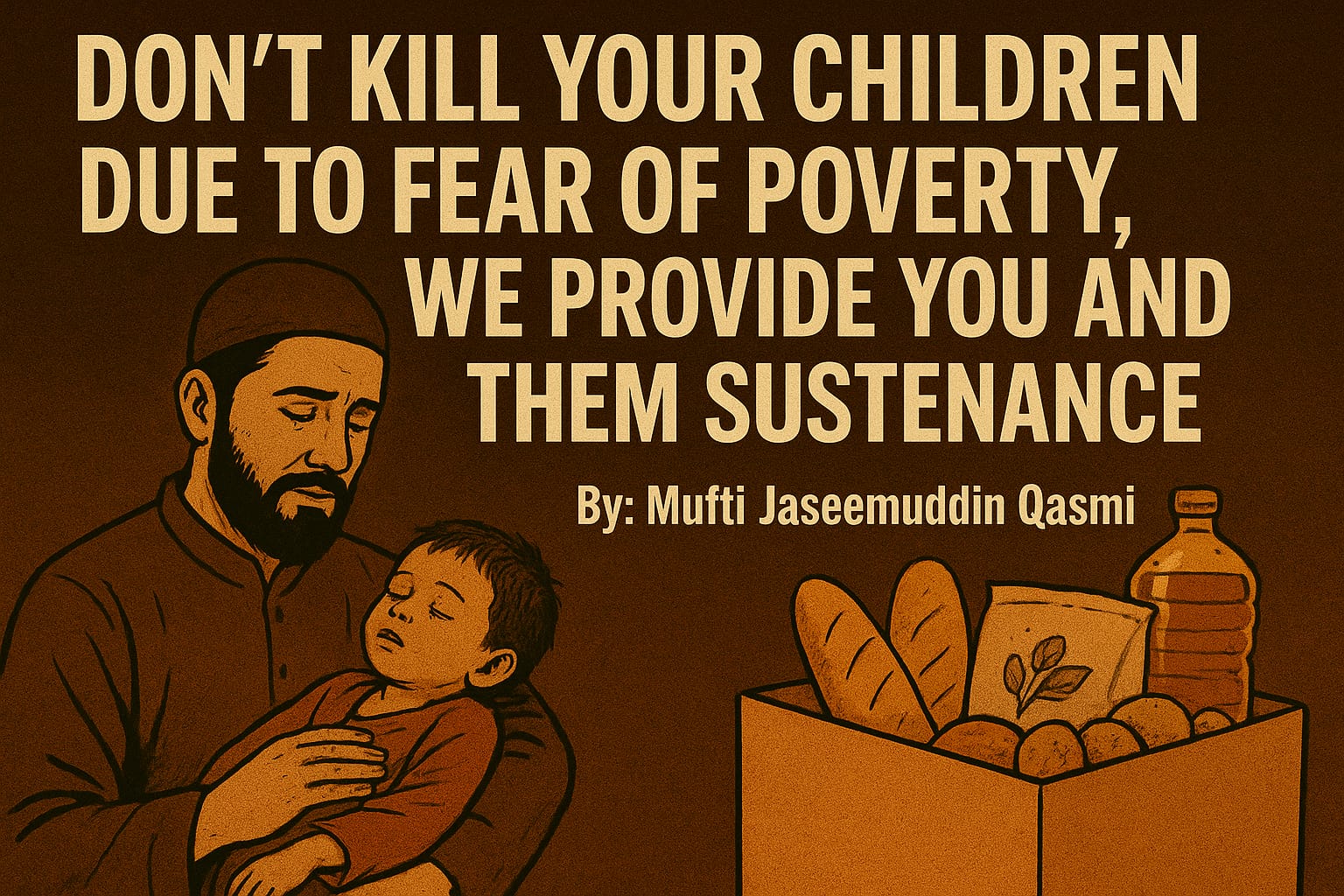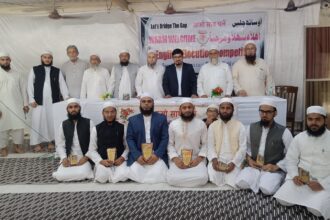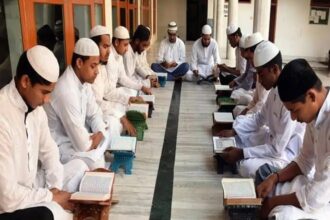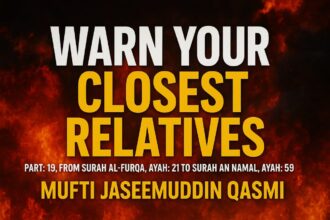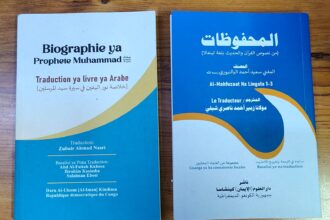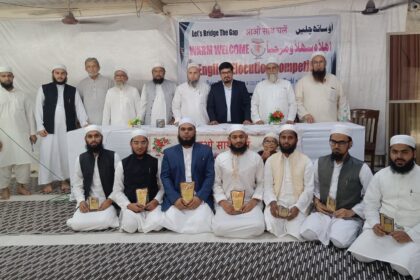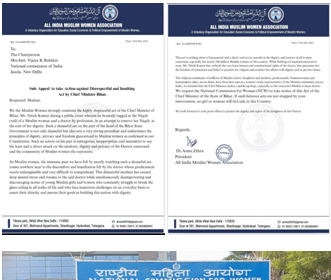Don’t Kill Your Children Due to Fear of Poverty, We Provide You and Them Sustenance
[Part: 15, from Surah Al-Isra to Al Kahaf, Ayah:74]
By; Mufti Jaseemuddin Qasmi
Coordinator Online Darul Ifta & Lecturer
MMERC, Mumbai
﷽
Fifteenth Part of the Quran starts from Surah Isra. This is Makkan Surah and it has 111 Ayahs. Another name of this surah is Bani Israel. This surah is named Isra (Night Journey), because it describes the event of Ascension or Mi’raj which started in the night, and it is named Bani Israel because two important stories of the Bani Israel are described in the beginning of the Surah.
Story of Meraj
The first ayah of Surah Al-Isra says: “Exalted is He who took His Servant by night from Masjid Al-Haram to Masjid Al-Aqsa, whose surroundings We have blessed, to show him of Our signs. Indeed, He is the All-Hearing, the All-Seeing.”
This ayah refers to the story of Isra and Mi’raj. The story of Mi’raj is that once Angel Jibreel came to the Prophet Muhammad (SAWS) and took him on a ride on an animal named Buraq, which carried him from Masjid Al-Haram to Masjid Al-Aqsa at an incredibly great speed. This was the first stage of the Mi’raj journey, which is called Isra.
Then from there, Hazrat Jibreel took him to the seven heavens. On each heaven, he met one of the previous prophets. After that, he visited the tree of Paradise, Sidrat al-Muntaha, and spoke directly to Allah Almighty. On this occasion, Allah Almighty ordained five daily prayers for his Ummah. Afterwards, he returned to Makkah that same night.
Here only first part of this holy journey is mentioned.
The way the Holy Qur’an mentions this story clearly indicates that it was an extraordinary event, which Allah Almighty has declared as one of His signs. If it were merely a dream, it would not have been unusual, because people often see strange things in dreams. Therefore, there would have been no reason to declare it a sign of Him. Moreover, in the Arabic language, the word Subhan is used to express amazement or wonder. If this event had been a dream, there would have been no cause for such surprise.

Attack of Bakht Nasr, the Ruler of the Babylonian Empire
Ayah 4 of Surah Al-Isra says: “And We conveyed to the Children of Israel in the Scripture that, ‘You will surely cause mischief on the earth twice, and you will surely become great transgressors.’”
Ayah 5 relates one of these two events: “We sent against you servants of Ours—those of great military might…”
What happened was that when the disobedience of the Israelites had crossed its limit, Bakht Nasr, the king of Babylon, attacked them and massacred many. Those who survived were captured and taken from Palestine to Babylon, where they remained for a long time, living in exile as his slaves.
Ayah 6 of Surah Isra says, “Then We gave you back the turn to prevail against them…”Actually, after 70 years, the Iranian ruler Khasavires attacked Babylon and freed them and resettled them in Palestine.
The second incidence of Banu Israel is mentioned from Ayah 7 of Surah Isra, that Antiochus Epiphanes had attacked the Jerusalem again shortly before the birth of prophet Isa (as) and massacred the Jews.
While some scholars say that it refers to the attack of King Titus of Rome after the ascension of prophet Isa (as). Further, it is said in the Quran that if you oppose the Prophet (saws) then you will be treated again in the same way.
Command to behave well with Parents
Allah Almighty orders to behave with parents in good manner, as He says in Ayah 23 and 24, “And your Lord has commanded that you not worship except Him, and to parents, good treatment. If one or both of them reach old age with you, do not say to them “uff,” (i.e. even a word of disrespect) and do not scold them but always speak gently to them.” And lower to them the wing of humility out of mercy and say, “My Lord, have mercy upon them as they brought me up in childhood.”
Ayah 26 orders to fulfil the rights of relatives, poor and travelers.
Then extravagance has been prohibited. For extravagance, the word tabdhīr has been used here, while in another place the word isrāf is used. The difference between the two is that if wealth is spent on a permissible matter but beyond necessity or moderation, it is called isrāf, whereas if wealth is spent on unlawful and sinful matters, it is called tabdhīr. Furthermore, the one who is extravagant has been described as the brother of Satan. Presenting an important principle of economic life, verse 29 states: “And do not keep your hands tied to your neck or extend it completely and [thereby] become blamed and destitute.”
Why girls were buried alive?
Sometimes the idolaters of Arabia buried their daughters alive because they considered the very existence of a girl in their home a source of shame. In addition, at times they killed their children out of fear that feeding them might lead to poverty. Islam placed a strict prohibition on this awful practice. Accordingly, in ayah 31 of Surah Isra, it is stated: “And do not kill your children, fearing poverty; We shall provide sustenance to them as well as to you; indeed killing them is a great mistake.”
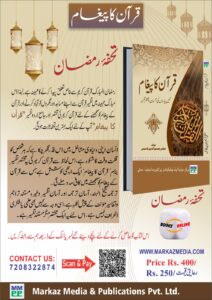
Aborting a pregnancy after four months also falls under the category of killing children. Likewise, adopting contraceptive methods out of fear of poverty, or terminating a pregnancy before four months, is also impermissible according to this ayah. In ayah 36 of the surah, the command is given that no accused person should be declared guilty until proper Shari‘ah evidence is established.
In ayah 60 it is mentioned that the disbelievers were tested through two events, and their stubbornness is illustrated by these two examples: one is the event of Mi‘rāj, which they refused to believe due to their stubbornness; the other is the tree of Zaqqūm, which will grow in Hell and which the people of Hell will have to eat, yet the disbelievers mocked it as well. In verse 76 it is stated that these disbelievers were plotting to expel you from Makkah, but if they attempted to do so, they themselves would not remain there for long. And indeed, this came true: eight years after the Hijrah, Makkah was conquered, and in the ninth year all the disbelievers were ordered to leave it.
Ayah 79 says, “And during a part of the night, pray as additional prayer [Tahajjud] for you…”
It means Tahajjud was an additional obligatory upon the prophet (saws)
In ayah 80, Allah says, “And pray: “O my Lord, let my entry be with honour, and let my exit be with honour, and grant me from Yourself a supporting authority.”
When the prophet (saws) was commanded to migrate, he was instructed to supplicate with this prayer.
In ayah 81, Allah says, “And say, “Truth has come, and falsehood has departed. Indeed falsehood, [by has to vanish.””
After the conquest of Makkah, when the prophet (saws) was demolishing the 360 idols in the Haram, this very verse was upon his lips.
In ayah 82, the Qur’an is described as a healing and mercy for the believers. It is further stated that among the People of the Book, there are some people of knowledge who, when the Qur’an is recited before them, fall down in prostration on their chins and weep before Allah.
Further, it is also instructed that you should neither recite in your prayer in a very loud voice nor in a very low voice, but rather adopt a moderate tone. When the recitation in prayer was done in a loud voice, the polytheists would create a disorder and they shout and make fun, trying to disrupt it. Therefore, it was commanded that there is no need to recite in a very loud voice; a moderate voice is more preferable. This indicates that unnecessarily using loudspeakers for prayer should be avoided.
﷽
Surah Kahaf begins from here. This is Makki Surah and it has 110 ayahs. Allah says in ayah 9, “Did you think that the People of (Kahf) the Cave and the Inscription, were Our exceptional signs?”
The story of the Companions of the Cave (Ashab al-Kahf) is that there were some young men.People disputed about their exact number. Some said they were three and the fourth was their dog, while others said six or seven. These young men lived during the reign of an idolatrous king, but they believed in the Oneness of God. Because of their faith in monotheism, the king persecuted them. So, they left the city and took refuge in a cave. There, Allah Almighty cast a deep sleep upon them, and they remained asleep for three hundred and nine years. During this time, by His perfect power, Allah kept them alive and preserved their bodies from decay.
Three hundred and nine years later, when their eyes opened, they had no idea that they had been asleep for such a long time; they thought they had slept only for a day or two. Feeling hungry, they sent one of their companions to the city to buy some food, instructing him to go cautiously so that the oppressive king would not find out.
By the will of Allah, during these three hundred years, that tyrant king had died, and a ruler of correct faith had come to the throne. When the companion reached the city to buy food, he offered the same old coin that had been in use in the kingdom three hundred years ago. The shopkeeper recognized the coin, and thus it became known that these people had slept for centuries.
When the king found out, he summoned them with great honor. Eventually, when these individuals passed away, a mosque was built in their memory.
The famous historian Edward Gibbon wrote that the oppressive king was Dosius, and this event took place in the city of Ephesus in Turkey. According to Gibbon, the king in whose reign these people woke up was Theodosius. Muslim historians and commentators have also narrated similar details, mentioning the tyrant king by the name of Daqyanus. Some modern researchers believe that this event occurred near the city of Amman in Jordan, where some corpses are reportedly still present in a cave.
At the time these people woke up, some people were disputing among themselves about whether people could be brought back to life after death. Allah showed through this event that the Allah who brought these people back to life after three hundred years, will have no difficulty in resurrecting people on the Day of Judgment.
In ayah 23, guidance is given that when you intend to do something, you should say “Insha’Allah” (if Allah wills).
From ayah 32, an incident is narrated which makes it clear that the abundance of wealth is not something one should be arrogant about. If a person’s relationship with Allah is not strong, even the wealthiest people will eventually end up empty-handed.
Story of Prophet Musa and Prophet Khidr
From ayah 60 until the end of this section, the story of Prophet Musa (as) and Prophet Khidr (as) is mentioned. Allah says: “And (remember) when Musa said to his young companion: I will continue my journey until I reach the junction of the two seas, or I will travel on for years.”
This incident is described in detail in authentic Hadith, the summary of which is as follows: Once, someone asked Prophet Musa (as), “Who is the most knowledgeable person on earth at this time?” Since every prophet in his era is the most learned regarding the religion, prophet Musa (as) replied, “I am the most knowledgeable.” Allah did not like this answer and reminded him that the correct response would have been: “Allah knows best who the most knowledgeable is.”
Furthermore, Allah intended to acquaint Musa (saws) with aspects of knowledge that were beyond his own understanding. Therefore, he was commanded to go to Prophet Khidr (sa). Accordingly, Musa (as) set out on this journey, taking along his young companion, Prophet Yusha‘ (Joshua as).
In ayah 61 of Surah Kahf says, “But when they reached the junction between them (the two seas), they forgot their fish, and it took its course into the sea, slipping away.”

Prophet Musa (as) reached a rock and rested there for a while, falling asleep. During that time, the fish that was in a basket slipped out and fell into the river. Since Prophet Musa (as) was asleep, his companion did not consider it appropriate to wake him.
Ayah 62 to 64 narrates the story further, “So when they had passed beyond it, he said to his attendant, “Bring us our morning meal. We have certainly suffered in this, our journey, much fatigue.” He said, “Did you see when we were resting by the rock? Indeed, I forgot [there] the fish. And none made me forget it except Satan – that I should mention it. And it made its way into the sea amazingly”. He (Musa) said, “That is what we were seeking.” So they returned, following their footprints.”
This was the sign given to Prophet Musa (as) that he would meet Prophet Khidr (as) at the place where the fish went missing. Ayah 65 mentions, “And they found one of Our servants to whom We had given mercy from Us and had taught him from Us a (certain) knowledge.
It was prophet Khidr(as) who was lying there covering his boy with a sheet.
Mosa said to him, “May I follow you on the condition that you teach me from what you have been taught of sound judgment?” He said, “Indeed, with me you will never be able to have patience.” “And how can you have patience for what you do not encompass in knowledge?”
Mosa said, “You will find me, if Allah wills, patient, and I will not disobey you in [any] order.”He said, “Then if you follow me, do not ask me about anything until I make to you about it mention.” So they set out, until when they had embarked on the ship, al-Khidr tore it open. Moses said, “Have you torn it open to drown its people? You have certainly done a grave thing.”
He said, “Did I not tell you that with me you would never be able to have patience?” Mosa said, “Do not blame me for what I forgot and do not cover me in my matter with difficulty.” So they set out, until when they met a boy, al-Khidr killed him. Moses said, “Have you killed a pure soul for other than [having killed] a soul? You have certainly done a deplorable thing.”
The next part of the story is mentioned from ayah 75 of Surah Kahf in 16th Part.

